Turmeric for Babies – Benefits and Side Effects

- Is Turmeric Safe for Infants?
- When to Introduce Turmeric to Your Baby’s Diet?
- Benefits of Turmeric
- Side Effects of Turmeric
- Precautions to Take While Giving Turmeric to Your Baby
- Ways to Add Turmeric to Your Baby’s Diet
- How to Prepare Turmeric for Baby-led Weaning?
- FAQs
As your baby grows, it’s crucial to consider the timing of introducing new foods. Turmeric, an Indian spice renowned for its antiseptic, anti-inflammatory, and healing properties, is often debated among parents. While it’s tempting to introduce this wonder spice to your baby early on, it’s essential to proceed with caution. Understanding how and when to introduce turmeric, as well as its potential side effects, is crucial.
Turmeric contains nearly three hundred natural components, including beta-carotene, vitamin C, calcium, flavonoids, fibre, iron, niacin, potassium, zinc, and many other highly nutritional elements. This article examines the safety of turmeric for babies and suggests ways to include it in their diet.
Is Turmeric Safe for Infants?
Turmeric can be given to infants when they are six months old. While introducing turmeric to a baby, it is essential to start with a tiny amount (just a tiny pinch in the food should do) (1). Too much turmeric can cause stomach problems.
When to Introduce Turmeric to Your Baby’s Diet?
It is essential to know when and how to give turmeric to your infant. Please remember that feeding turmeric in any form to newborn babies is unsafe. You can feed it to infants who can consume solid foods, but not before that. You can add turmeric to your child’s diet from when he is six months old, but the most recommended time is when he is nine months old.
Adding natural ingredients to your baby’s diet from a young age will go a long way. Hence, adding turmeric at the right time is fine.
You may also check with a paediatrician to confirm if your baby is ready to consume turmeric. When you start, keep a close eye on your baby to ensure they have no reactions.
We all know why turmeric is consumed—for its antiseptic and anti-inflammatory properties. But where and when does this magical spice help? Let’s take a look at its benefits.
Benefits of Turmeric
Turmeric is one of the natural ingredients that can be applied externally and consumed. Most of the uses and benefits that come from turmeric are from one of its significant components called curcumin, the main active ingredient in the spice, which makes it a powerful antioxidant and also gives it its anti-inflammatory properties.
Here are some of the many benefits of turmeric:
1. Helps in Digestion
Turmeric can be added to your child’s diet to aid the production of bile and smoothen the process of digestion (2). It also provides relief from bloating.
2. Prevents Inflammatory Bowel Disease
Recent research has discovered that turmeric’s component curcumin can prevent Crohn’s disease, Ulcerative Colitis, and other inflammatory bowel diseases (3).

3. Natural Pain Killer
Curcumin in turmeric is known to reduce inflammation and help the adrenal gland make more cortisone, which is a natural painkiller and helps with conditions like knee osteoarthritis (4).
4. Balances Cholesterol Levels
Research says that the yellow pigment in turmeric, also known as curcuminoids, reduces LDL cholesterol, which is the bad cholesterol in our bodies. It also stops the oxidation of bad cholesterol and thus reduces the chances of heart disease (5).
5. Enhances the Skin
The curcumin in turmeric has antioxidant properties that help heal wounds and reduce inflammation. Applying a paste made of turmeric and milk on the baby’s skin can give him soft and glowing skin. The mixture is an excellent home remedy for eczema and other skin issues (6).
6. Fights Chemicals in the Body
Curcumin can neutralise free radicals and harmful chemicals that run in the body and attack healthy cells and cell membranes. Turmeric for cough remedy is also used often (7). It thus helps build immunity (8).
Now that you know the benefits of consuming turmeric, here are some ways to add it to your baby’s diet.
Side Effects of Turmeric
While turmeric can be a beneficial addition to your little one’s diet after a certain age, it’s important to be aware of potential side effects. Here are some of them:
- You need to figure out if your child is allergic to turmeric. Like many other food options, turmeric can also cause irritation and itchiness in the skin (9).

- Turmeric has many medicinal properties and is used to combat several health issues. However, using it alongside medication can sometimes cause serious problems (10).
Precautions to Take While Giving Turmeric to Your Baby
While turmeric has several health benefits, it could also have potential side effects, especially if fed in large quantities to infants. This is why it is crucial to take the following precautions:
- Ensure that the turmeric or turmeric power you purchase is from an organic and reputed brand
- Feed a tiny pinch to your baby to test for allergies or reactions
- Make homemade powder with turmeric where possible to ensure safety and quality
- Avoid feeding turmeric supplements to babies
Ways to Add Turmeric to Your Baby’s Diet
Here are some ways you can feed turmeric to your baby. Remember that your child needs to be introduced to solid foods beforehand. If you see any signs of allergies, discontinue use and seek medical attention if required.
- Turmeric milk – Add a pinch of turmeric powder to a small cup of milk. Add some sugar if needed. Sugar should be avoided for babies under one year old. Turmeric milk for babies is one of the best ways to introduce this spice into their diet.
- Soups – Add a pinch of turmeric to the soup preparations. Ensure you bring the soup to a boil before cooling it and feeding it to your baby.
- Khichadi or Dals – The traditional recipes for khichadi and dal contain some turmeric, but because the preparation is for your baby, add just a tiny bit.
- Mashed and pureed foods – Turmeric can be added to baby foods like carrots, pumpkin, and mashed potatoes.
- Chicken – If you have introduced your baby to chicken, you may add a pinch of turmeric to it while it is cooking
It is always better to know the side effects of all the foods to ensure your baby does not develop any allergies or reactions. Although turmeric is one of the most famous spices in our tradition that brings about healing, you might feed it to your little one only to realise later that your baby’s body is not ready for the spice. You must be aware of some side effects to ensure you seek medical attention immediately.
How to Prepare Turmeric for Baby-led Weaning?
Babies build an affinity for certain foods based on their growth and development trajectory. To ensure the safety of feeding turmeric to babies, the following steps should be taken based on different stages of their growth. This will help them get accustomed to turmeric naturally.
1. For 6 to 12 Months
You can add a pinch of powdered or grated turmeric to fruit and vegetable purees made for babies in soft porridge, oats, soups, or dals.
2. For 12 to 18 Months
You can now experiment with more food types. Stick to powdered or grated turmeric in controlled amounts and add it to pancakes, rotis, breads, or muffins. You can also introduce mixing it with ghee rice.
3. For 18 to 24 Months
As your baby can consume more textured foods, you can mix turmeric into smoothies, softened beans, oatmeal, or as a paste in tofu dishes, milk, or turmeric teas.
FAQs
1. Can turmeric cause choking issues in babies?
As long as turmeric is introduced to your baby’s diet in powdered or finely grated form, it should not be a choking hazard. Ensure you keep pieces of turmeric out of an infant’s reach to avoid unintentional choking. It is also noted that turmeric might cause an anaphylactic reaction in rare cases, so always do a tiny taste test before adding it to your baby’s regular diet.
2. Can turmeric impact a baby’s poop?
In small quantities, turmeric aids digestion and can help your baby pass motions more easily. However, due to its fibre content, it can cause digestive discomfort when fed in large amounts.
Turmeric has definite benefits for both children and adults. Adding the spice to your food can increase its nutritional value. However, when it comes to your baby, you need to check if he can tolerate it. So, when you introduce the spice, check with a paediatrician and only add a bit of turmeric to one of your baby’s recipes to check if he can consume it without any issues.
References/Resources:
1. Boonjaraspinyo, S., Boonmars, T., Aromdee, C., Puapairoj, A., Wu, Z.; Indirect effect of a turmeric diet: enhanced bile duct proliferation in Syrian hamsters with a combination of partial obstruction by Opisthorchis viverrini infection and inflammation by N-nitrosodimethylamine administration; Parasitol Res; https://pubmed.ncbi.nlm.nih.gov/20821233/; January 2011
2. Ng, Q.X., Soh, A.Y.S., Loke, W., Venkatanarayanan, N., Lim, D.Y., and Yeo, W.S.; A Meta-Analysis of the Clinical Use of Curcumin for Irritable Bowel Syndrome (IBS): J Clin Med; https://www.ncbi.nlm.nih.gov/pmc/articles/PMC6210149/ January 2011
3. Paultre, K., Cade, W., Hernandez, D., Reynolds, J., Greif, D., and Best, T.M.; Therapeutic effects of turmeric or curcumin extract on pain and function for individuals with knee osteoarthritis: a systematic review; BMJ Open Sport Exerc Med; https://www.ncbi.nlm.nih.gov/pmc/articles/PMC7812094/; January 2021
4. Qin, S., Huang, L., Gong, J., Shen, S., Huang, J., Ren, H., and Hu, H.; Efficacy and safety of turmeric and curcumin in lowering blood lipid levels in patients with cardiovascular risk factors: a meta-analysis of randomised controlled trials; Nutr J; https://www.ncbi.nlm.nih.gov/pmc/articles/PMC5637251/; October 2017
5. Vollono, L., Falconi, M., Gaziano, R., Iacovelli, F., Dika, E., Terracciano, C., Bianchi, L., and Campione, E.; Potential of Curcumin in Skin Disorders; Nutrients; https://www.ncbi.nlm.nih.gov/pmc/articles/PMC6770633/; September 2019
6. Prasad, S., and Aggarwal, B.B.; Turmeric, the Golden Spice: From Traditional Medicine to Modern Medicine; In Benzie IFF, Wachtel-Galor S, editors; Herbal Medicine: Biomolecular and Clinical Aspects; https://www.ncbi.nlm.nih.gov/books/NBK92752/; 2011
7. Jagetia, G.C., and Aggarwal, B.B.; “Spicing up” of the immune system by curcumin; J Clin Immunol; https://pubmed.ncbi.nlm.nih.gov/17211725/; January 2007
8. Robinson, D.M.; Anaphylaxis to turmeric; J Allergy Clin Immunol; https://www.jacionline.org/article/S0091-6749(03)80281-6/fulltext ; February 2003
9. Curcumin; Oregon State University; https://lpi.oregonstate.edu/mic/dietary-factors/phytochemicals/curcumin
Garlic for Infant
Cinnamon for Babies
Benefits of Nutmeg for Babies
Introducing Ginger to Babies
Was This Article Helpful?
Parenting is a huge responsibility, for you as a caregiver, but also for us as a parenting content platform. We understand that and take our responsibility of creating credible content seriously. FirstCry Parenting articles are written and published only after extensive research using factually sound references to deliver quality content that is accurate, validated by experts, and completely reliable. To understand how we go about creating content that is credible, read our editorial policy here.







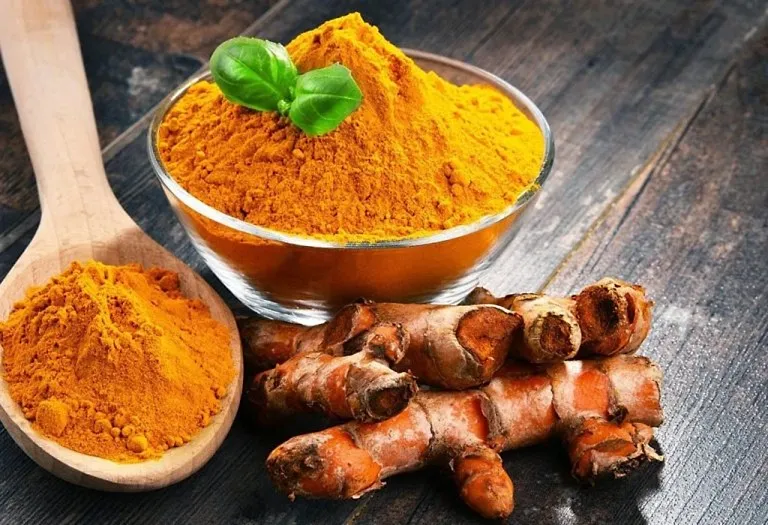
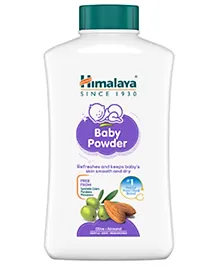
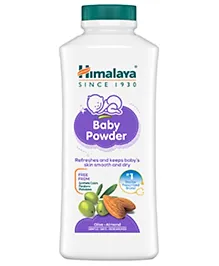

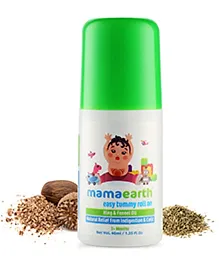
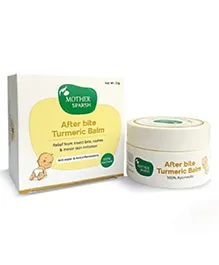
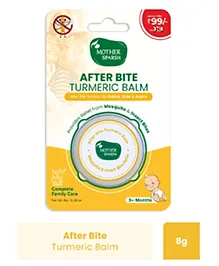

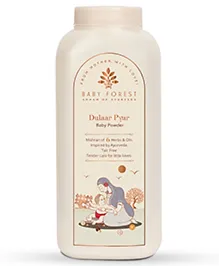



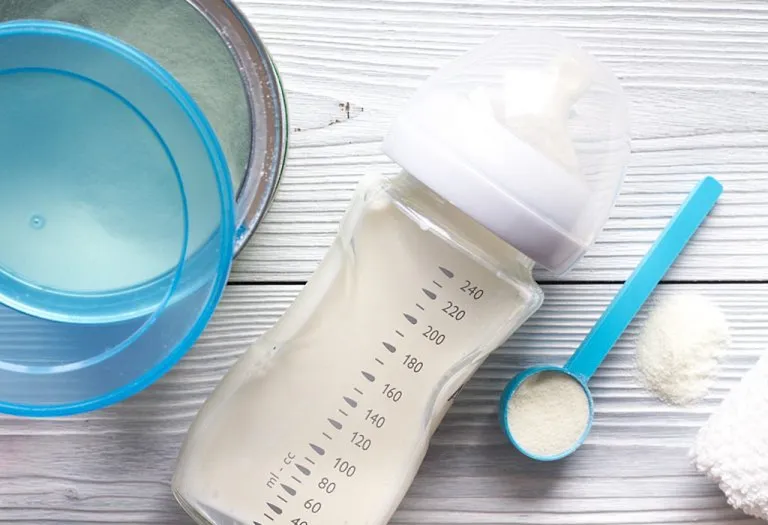

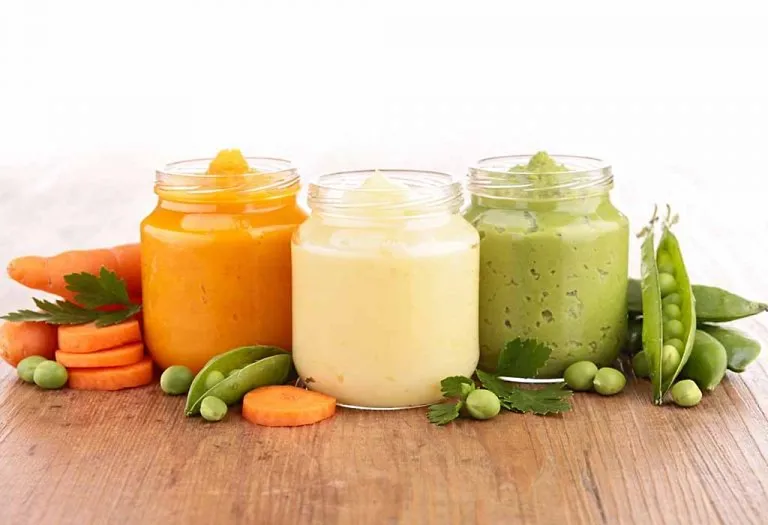

.svg)


















